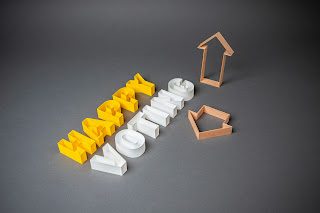In an age where trust in traditional voting systems is increasingly questioned, the potential of blockchain technology to revolutionize the electoral process has garnered significant attention.
From ensuring transparency to combating fraud, blockchain offers a promising solution to enhance electoral integrity.
Let's delve into how blockchain can reshape voting systems and safeguard the democratic process for future generations.
Understanding the Potential of Blockchain in Voting
Blockchain, the decentralized ledger technology underpinning cryptocurrencies like Bitcoin, operates on principles of transparency, immutability, and security.
By recording transactions across a distributed network of computers, blockchain eliminates the need for centralized authorities and reduces the risk of tampering or manipulation.
Applied to voting systems, blockchain can provide a secure and transparent platform for casting and counting votes, bolstering trust in the electoral process.
Enhancing Security and Transparency
One of the primary advantages of blockchain-based voting systems is their resilience to hacking and tampering. Each vote cast on the blockchain is encrypted and time-stamped, making it virtually impossible for malicious actors to alter or manipulate the results without detection.
Moreover, the transparent nature of blockchain ensures that all transactions are publicly recorded and verifiable, allowing voters to independently verify the integrity of the electoral outcome.
Empowering Voter Participation
Blockchain technology has the potential to streamline the voting process, making it more accessible and inclusive.
Through secure digital identities stored on the blockchain, voters can cast their ballots remotely from any location, eliminating barriers such as physical proximity to polling stations or logistical constraints.
Additionally, blockchain-based voting systems can facilitate real-time vote counting, providing instant feedback to voters and reducing the time and resources required for manual tabulation.
Mitigating Fraud and Ensuring Audibility
Traditional voting systems are susceptible to various forms of fraud, from ballot stuffing to tampering with electronic voting machines.
Blockchain addresses these concerns by creating an immutable record of every vote cast, ensuring that once recorded, votes cannot be altered or deleted.
Moreover, the decentralized nature of blockchain ensures that no single entity has control over the voting process, reducing the risk of collusion or manipulation by vested interests.
Case Studies and Real-World Applications
Several countries and organizations have already begun exploring the use of blockchain in voting systems. Estonia, often hailed as a pioneer in e-governance, has implemented blockchain-based digital ID cards and e-voting systems, allowing citizens to securely cast their votes online.
Similarly, organizations like Voatz and Follow My Vote are developing blockchain-powered voting platforms, aiming to revolutionize elections by prioritizing security, accessibility, and transparency.
Challenges and Considerations
While the potential benefits of blockchain in voting systems are undeniable, several challenges and considerations must be addressed before widespread adoption. Scalability, privacy concerns, and the digital divide are among the primary obstacles to overcome.
Additionally, ensuring the security and integrity of blockchain-based voting systems requires robust cybersecurity measures and continuous auditing to detect and mitigate potential vulnerabilities.
The Path Forward
As we navigate the complexities of modern democracy, blockchain technology offers a beacon of hope for enhancing electoral integrity and empowering citizen participation.
By leveraging the transparency, security, and decentralization inherent in blockchain, we can create voting systems that are resilient to manipulation and accessible to all.
As policymakers, technologists, and citizens alike embrace this transformative technology, the future of democracy holds promise for a more secure and inclusive electoral process.
Edited by - Shambhavi Srivastava
This article has been authored exclusively by the writer and is being presented on Eat My News, which serves as a platform for the community to voice their perspectives. As an entity, Eat My News cannot be held liable for the content or its accuracy. The views expressed in this article solely pertain to the author or writer. For further queries about the article or its content you can contact on this email address - contactmeshambhavi@gmail.com









0 Comments